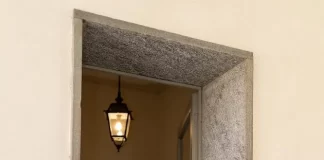Amidst escalating environmental challenges in Pakistan, including record air pollution levels, LUMS has collaborated with the Lahore Biennale Climate Congress to hold a series of sessions at the University from November 6-8, 2024.
The series featured the opening of a group art exhibition, a collateral event of Lahore Biennale 03 (Of Mountains and Seas), titled ‘Lamenting the Beloved City or Pledging Devotion Afresh?’. This exhibition presented a collection of work by 19 artists, inviting a united response to the environmental risks we face as a civilization, especially in the Global South. The show urged viewers to think together and act in unison to mitigate all habits and materials that harm nature and tax the ecosystem. The exhibition also had an interactive component, with two stationed whiteboards and markers inviting attendees to make a personalized climate pledge dedicated to increasing awareness and changing habits.Marking the significance and creativity of the exhibition, the curator Dr. Nadhra Shahbaz Naeem Khan, Associate Professor at LUMS, expressed the theme of the event with an excerpt of her self-penned poem: “I may be a single drop, together we become an ocean; I may be a solitary fighter, together we can advance as victors!”
Climate change and environmental degradation have become undeniable realities. Interdisciplinary dialogues within the fields of arts, humanities, law, and social sciences are fostering hope for a transformative shift in climate narratives. With this endeavor, Drs. Maryam Ibrahim and Sana Khosa, Climate Congress collaborators at LUMS, organized two panel discussions around Urban Ecologies and Climate Narratives.
The insightful panel discussion titled ‘Urban Ecologies: Infrastructures and Lived Realities’ was moderated by Dr. Maryam Ibrahim, Assistant Professor at LUMS. The session brought together experts to explore the intersections between urban infrastructure and environmental resilience. Dr. Amen Jaffer, an urban ethnographer and sociologist, talked about urban realities in the context of social networks and environmentalism, while Drs. Ameem Lutfi and Nosheen Zaidi presented their research on water mapping in Lahore, bringing in a sociological perspective. Aneeqa Wattoo, a writer and poet, explored urban spaces in the context of gender and everyday modalities. These perspectives underscored the challenges and opportunities within Lahore’s evolving urban landscape.
The series is scheduled to conclude with the upcoming ‘Climate Narratives: Storytelling, Advocacy and Environmental Justice’ panel on November 8. The discussion will bring together Dr. Saba Pirzadeh, Ahmad Rafay Alam, and Dr. Fazilda Nabeel— renowned experts from different disciplines and different modalities of climate and environmental engagement. They will talk about South Asian fiction and narratives of climate catastrophes, the urgency of climate action, and real ground-level steps for transformative and meaningful change.
Reflecting on the role of academia in climate change, Dr. Ali Cheema, Vice Chancellor LUMS, shared, “As an academic institution, our role extends beyond advancing research and education on these critical topics; we also strive to foster debate by engaging diverse perspectives to reach broader audiences and inspire varied responses. These events underscore the vital role that art and the humanities play in deepening our understanding of ourselves and our ecosystem, emphasizing the importance of using diverse forms of knowledge and representation to shape both discourse and action.”

